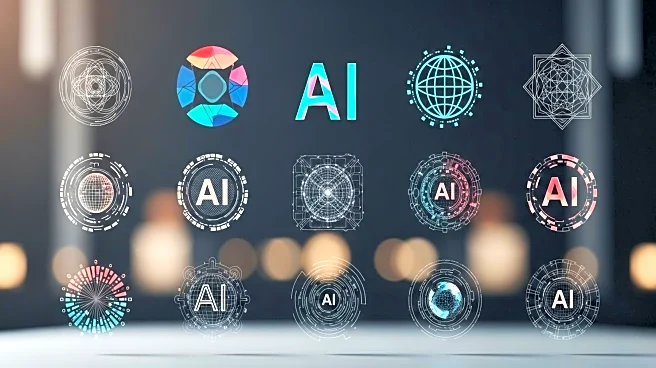What's Happening?
TIME magazine has unveiled its 2025 'TIME100 AI' list, marking the third edition of this influential compilation. The list showcases prominent figures in artificial intelligence, reflecting a diverse and global representation. Notably, this year's list includes a significant number of Chinese figures, such as Professor Xue Lan from Tsinghua University and Ren Zhengfei, founder of Huawei. The list also features well-known names like Elon Musk, Sam Altman, and Fei-Fei Li, emphasizing the multi-dimensional influence of AI across various sectors including healthcare, education, and governance. The list categorizes individuals into 'Leaders', 'Innovators', 'Shapers', and 'Thinkers', highlighting their roles in shaping the future of AI.
Why It's Important?
The inclusion of diverse figures from different regions underscores the global nature of AI development and its impact on various industries. The rise of Chinese figures on the list signifies China's growing influence in AI, both technologically and in governance. This shift reflects broader trends in international collaboration and competition in AI, with implications for global policy and economic strategies. The list serves as a barometer for the evolving landscape of AI, highlighting the importance of cross-border integration and governance in ensuring sustainable development. Stakeholders in the U.S. and globally must consider these dynamics as they navigate the future of AI.
What's Next?
The list suggests ongoing technological competition, particularly in areas like large models and AI chips, which will continue to drive innovation. Governance issues, such as data security and algorithm bias, are expected to gain prominence, requiring new balances between governments, enterprises, and academia. The acceleration of AI applications in fields like healthcare and education will further integrate AI into social infrastructure. As global cooperation and competition coexist, the diverse representation on the list points to a future where inclusivity and multi-polar collaboration shape AI's trajectory.
Beyond the Headlines
The list highlights the ethical and governance dimensions of AI, emphasizing the need for responsible development and international cooperation. The presence of figures advocating for AI diversity and ethical frameworks suggests a shift towards more inclusive and socially conscious AI policies. This trend may influence future regulatory approaches and public perception of AI technologies, impacting how they are integrated into everyday life.









